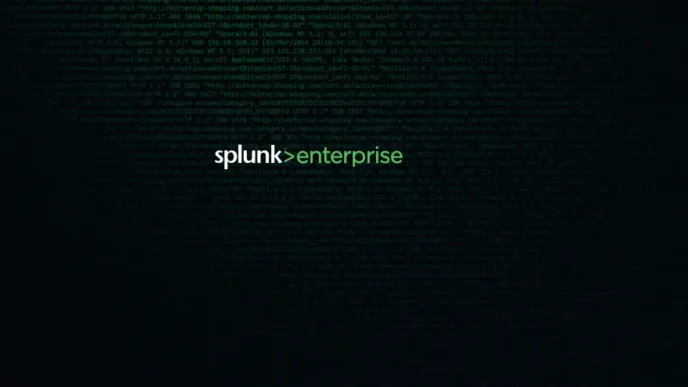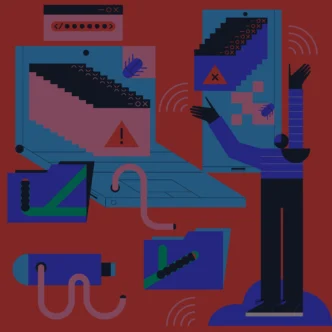Introduction: Why Cloud Security Analysts Are Critical in Today’s Cyber Landscape
As organizations migrate to cloud infrastructures to enhance scalability and efficiency, the need to protect sensitive data in virtual environments has never been greater. The rise of multi-cloud strategies, stricter data privacy regulations, and a surge in cyber threats have positioned Cloud Security Analysts at the forefront of cybersecurity defense. These professionals are responsible for securing cloud-based systems and ensuring compliance with global regulatory frameworks—a role that’s not just technical but increasingly strategic.
What Does a Cloud Security Analyst Do?
A Cloud Security Analyst monitors, assesses, and improves the security of cloud infrastructure, platforms, and software as a service (SaaS) environments. Their responsibilities span across threat detection, compliance auditing, risk assessment, and incident response within cloud ecosystems such as AWS, Microsoft Azure, and Google Cloud Platform.
Key Responsibilities:
- Monitor cloud environments for security threats and vulnerabilities
- Perform risk assessments and cloud configuration audits
- Ensure compliance with data protection regulations (e.g., GDPR, HIPAA, CCPA)
- Design and enforce cloud security policies and best practices
- Investigate and respond to security incidents in cloud environments
- Collaborate with DevOps and IT teams to implement secure cloud architecture
- Maintain up-to-date knowledge of cloud service provider security tools
Education Requirements
While the role is skill-based, most employers prefer candidates with a formal educational background in technology or cybersecurity.
Common Degrees:
- Bachelor’s in Cybersecurity
- Bachelor’s in Information Technology or Computer Science
- Master’s in Information Assurance or Cloud Computing (optional but valuable)
Certifications often complement or substitute for formal education, especially for career changers or professionals upskilling in cloud security.
Key Certifications for Cloud Security Analysts
| Certification Name | Issuer | Difficulty | Renewal |
|---|---|---|---|
| AWS Certified Security – Specialty | Amazon Web Services | Advanced | Every 3 years |
| Microsoft Certified: SC-100 | Microsoft | Advanced | Every 1 year |
| Google Cloud Professional Cloud Security Engineer | Google Cloud | Advanced | Every 2 years |
| Certified Cloud Security Professional (CCSP) | (ISC)² | Advanced | Every 3 years + CPE |
| CompTIA Cloud+ | CompTIA | Intermediate | Every 3 years |
| GIAC Cloud Security Essentials (GCLD) | GIAC | Intermediate | Every 4 years |
| Cisco Certified CyberOps Associate | Cisco | Beginner | Every 3 years |
Key Skills for Success
Technical Skills:
- Cloud platform proficiency (AWS, Azure, GCP)
- Identity and Access Management (IAM)
- Cloud workload protection platforms (CWPP)
- SIEM and SOAR systems (e.g., Splunk, Microsoft Sentinel)
- Encryption technologies and key management
- Infrastructure as Code (Terraform, CloudFormation)
Legal & Regulatory Knowledge:
- GDPR, HIPAA, PCI DSS, ISO/IEC 27001
- Cloud Security Alliance (CSA) frameworks
- National Institute of Standards and Technology (NIST) guidelines
Interpersonal & Soft Skills:
- Risk communication and reporting to stakeholders
- Team collaboration with DevOps, legal, and compliance units
- Analytical thinking and incident response planning
Cloud Security Analyst Career Path
| Career Stage | Title | Typical Experience |
|---|---|---|
| Entry-Level | Cloud Security Analyst (Junior) | 0–2 years |
| Mid-Level | Cloud Security Analyst / Engineer | 2–5 years |
| Senior-Level | Senior Cloud Security Engineer | 5–8 years |
| Management | Cloud Security Manager / Lead | 8–12 years |
| Executive | CISO / Director of Cloud Security | 12+ years |
Top Industries & Employers Hiring Cloud Security Analysts
Industries:
- Financial Services and Banking
- Healthcare and Pharmaceuticals
- Government and Public Sector
- Technology and SaaS Companies
- Energy and Utilities
- E-commerce and Retail
Major Employers:
- Amazon Web Services (AWS)
- Microsoft
- IBM
- Deloitte
- Palo Alto Networks
- JP Morgan Chase
- U.S. Department of Defense
- Accenture
How to Get Started as a Cloud Security Analyst
- Gain a foundational degree in cybersecurity or IT (or pursue certifications if switching careers).
- Learn core cloud platforms like AWS, Azure, and GCP via hands-on labs or courses.
- Obtain relevant certifications such as CCSP, AWS Security Specialty, or CompTIA Cloud+.
- Build practical experience through internships, home labs, or entry-level security roles.
- Join industry groups (e.g., Cloud Security Alliance) and attend cybersecurity conferences.
- Apply for junior roles, leveraging your cloud knowledge and certifications.
- Continue upskilling through advanced certifications and cloud-native security tools.
Common Professional Challenges
- Rapid evolution of cloud services and security tools
- Balancing security needs with DevOps speed
- Managing third-party risks in complex cloud supply chains
- Navigating multi-cloud and hybrid environments
- Staying compliant with international data privacy regulations
- Real-time incident detection and response in cloud-native systems
Global Salary Comparison for Cloud Security Analysts
| Country | Entry-Level | Mid-Level | Senior-Level |
|---|---|---|---|
| USA | $85,000 | $115,000 | $150,000 |
| UK | £45,000 | £70,000 | £95,000 |
| Switzerland | CHF 85,000 | CHF 120,000 | CHF 150,000 |
| France | €40,000 | €60,000 | €85,000 |
| Australia | A$90,000 | A$120,000 | A$150,000 |
Cloud Security Analyst Job Market Outlook
- According to Cybersecurity Ventures, cloud security roles are expected to grow by 115% by 2030, driven by increased cloud adoption and rising threat complexity.
- Gartner forecasts 70% of all enterprise workloads will be in the cloud by 2026, underscoring the importance of cloud-first security strategies.
- The U.S. Bureau of Labor Statistics projects a 32% job growth rate in information security roles through 2032, much faster than the average for all occupations.
Cloud Security Analyst Job Market Outlook
- According to Cybersecurity Ventures, cloud security roles are expected to grow by 115% by 2030, driven by increased cloud adoption and rising threat complexity.
- Gartner forecasts 70% of all enterprise workloads will be in the cloud by 2026, underscoring the importance of cloud-first security strategies.
- The U.S. Bureau of Labor Statistics projects a 32% job growth rate in information security roles through 2032, much faster than the average for all occupations.














